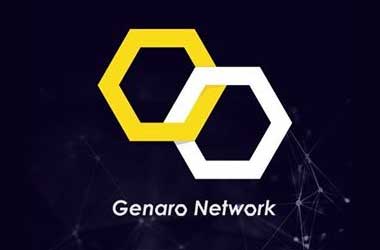 The researchers at MIT are working to develop a BTC Lightning Network based on smart contracts. MIT’s Digital Currency initiative, which began in 2015, aims to create a better and a sophisticated scaling on the Bitcoin network.
The researchers at MIT are working to develop a BTC Lightning Network based on smart contracts. MIT’s Digital Currency initiative, which began in 2015, aims to create a better and a sophisticated scaling on the Bitcoin network.
The system executes smart contracts automatically after placing them in a queue. When the smart contracts are processed, buy/sell orders and transfer of funds take place.
The smart contracts used by the system will carry out trades when the price of Bitcoin or a fiat currency breaches a pre-set level. The MIT researchers Alin Dragos and Tadge Dryja have built a test oracle that transmits US dollars to the smart contract in the form of Satoshis. The test oracle’s primary function is to relay data to the contract. It is the most recent step by MIT with respect to ‘lit’ implementation of the Lightning Network.
Dragos said
“We built this as a standalone feature of our lightning network software. We chose data what we thought would be cool, U.S. dollars, but it could be any data you want, whether weather or a stock.”
The concept was first proposed by Lightning Network’s Thaddeus Dryja last year. However, MIT was the first to develop the prototype, which is still being tested and is not ready for real-life use. However, the researchers believe that the system can be used to successfully scale with the new model.
Dragosfurther stated
“We at DCI, we really believe in the lightning network. Bitcoin doesn’t scale very well. I decided there has to be something better. Turns out what’s better is lightning. It’s the way to scale.”
More than scalability, the sophistication that is offered by the prototype will appeal to the crypto community. For example, the smart contracts can be used to place bets during a sports event and then pay out winners based on the data received (outcome of the sporting event).
The cryptocurrency community usually thinks about Ethereum when the topic of smart contracts comes up. However, given the right conditions, Bitcoin network can execute smart contracts as well. Dragos stated that Bitcoin is not developer friendly because it was not created for that. Still, with a bit of creativity, smart contract execution can be accomplished using Bitcoin network.
Dryja’s model achieves scalability using “discreet log contracts” protocol to relay data to off-chain contracts. Furthermore, the system provides privacy as the oracles do not require user information to operate. Dragos stated that they will also introduce a model where oracles will not have any idea of “who’s using the data they’re using.”
Presently the system uses oracles which are trusted. However, Dragos aims to develop a near trustless system through the use of multiple oracles, which users can access. The researchers do acknowledge the need to overcome certain obstacles, but are confident of building the technology, which can be put to real world use by enterprises to satisfy customer needs.
Dragos said
“We’re working with companies that might implement this. UX is not our core expertise. It’s a hard guess. It could be a significant deal if people use it. But we don’t know what people are going to be using it for.”

 United States
United States United Kingdom
United Kingdom














